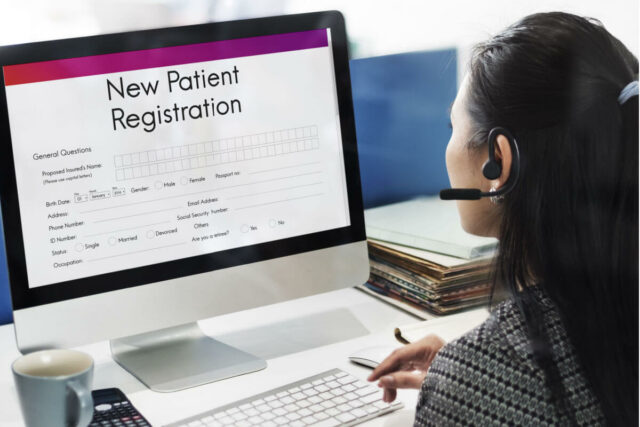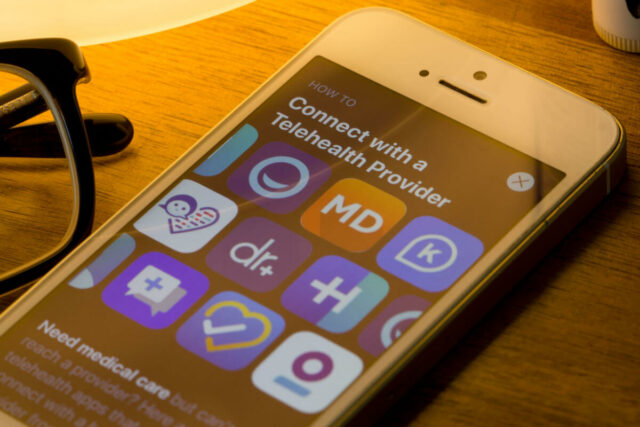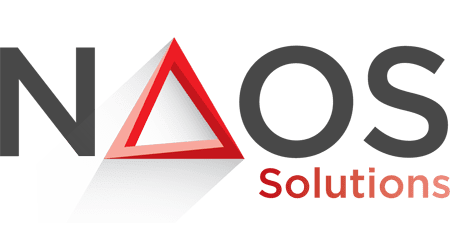Patient Support Vs. Customer Service: Understanding the Uniqueness of Patient Support Services in the Contact Center Industry
As the healthcare industry evolves, Patient Support services in contact centers have become increasingly crucial for providing top-quality care. However, there is often confusion between Patient Support services and traditional Customer Service. While both services have similarities, they serve different purposes and have unique requirements.

In this blog post, we will explore the uniqueness of Patient Support services in the contact center industry and understand the differences between Patient Support Services and Customer Service. We will also look at the skills required for Patient Support and Customer Service agents, the KPIs to measure success, and the must-have requirements for a contact center to provide excellent Patient Support.
So, let’s dive in and understand the importance of Patient Support services and how they differ from Customer Service.
Patient Support Vs. Customer Service: Understanding Their Different Drivers and Purposes
One of the main challenges of contact centers is understanding the supported audience’s needs and expectations. Whether serving customers or patients, they must provide a high-quality service that meets their satisfaction and loyalty. However, key differences and similarities between customers and patients affect how contact centers operate and communicate.
Meeting Customers’ Expectations to Build Loyalty
Customer Service refers to the assistance a company provides its customers before, during, and after a purchase. It deals mainly with solving technical and commercial issues.

When a customer decides to make a purchase, they have many options. They will compare prices, quality, features, and reviews before purchasing. Customers expect a fast, easy, and convenient service that delivers what they paid for.
Building customer loyalty requires consistently meeting and exceeding expectations for a positive customer experience. Customers want to be respected and treated with courtesy. They also want their issues resolved quickly and effectively. Customers who do not receive a positive experience can easily switch to another company.
Managing Patients’ Expectations To Bring The Best Possible Healthcare Service
Patient Support is a specialized type of Customer Service that focuses on the needs and expectations of patients in the healthcare industry. It helps patients schedule appointments, fill prescriptions, access test results, and pay bills. It uses channels like texting, email, or online portals to communicate with patients and provide them with relevant information.
Unlike Customer Service, which deals with general inquiries and issues, Patient Support requires a deeper understanding of medical terminology, privacy regulations, and empathy skills.

When patients need to contact support centers, they often experience high stress and anxiety levels. Frustration and anxiety make it more difficult for patients to express their needs and health issues effectively. For the support center, it can result in longer handling times, ultimately impacting patient satisfaction.
Contact Centers train their Patient Support agents to handle sensitive and complex situations, such as scheduling appointments, verifying insurance coverage, providing health education, and resolving complaints. Patient Support is essential for building trust and loyalty among patients and improving their health outcomes and satisfaction.
A patient differs from a customer as they may not have a choice of which healthcare provider to go to, depending on their insurance plan, location, availability, etc. Patients expect a safe, accurate, compassionate service that improves their health and well-being. They also wish to be treated with empathy and dignity and to have their questions answered clearly and honestly. Patients can have long-term relationship with their healthcare providers if they trust and feel comfortable with them.
Similarities In Defining Excellent Patient Or Customer Service
Both customers and patients value communication, feedback, and personalization. They want to be heard and understood by the contact center agents and to receive relevant information and solutions that suit their needs and preferences.
Patient Support Vs. Customer Service: Required Skills for Agents
Effective patient and customer support requires agents to possess various soft skills that enable them to connect with patients or customers personally, understand their needs and concerns, and provide tailored support that meets their unique needs. Key soft skills include empathy, communication, active listening, problem-solving, patience, resilience, cultural sensitivity, and teamwork. These skills are essential for agents to establish trust, build rapport, and provide exceptional support, resulting in high patient or customer satisfaction levels.

Agents who perform patient or customer support must be able to communicate effectively and build strong relationships with patients or customers. They must also be able to work collaboratively with colleagues to solve complex problems and provide the best possible support. To achieve this, agents must possess excellent soft skills, including listening actively, communicating clearly and concisely, solving problems creatively, and adapting to changing situations. By cultivating these skills, agents can provide patient or customer support that is compassionate, effective, and responsive to the unique needs of each patient or customer.

In addition, agents must be able to multitask and manage their time effectively, as they may be required to handle multiple inquiries simultaneously, prioritize urgent issues, and ensure that all patient or customer inquiries are addressed in a timely manner. By mastering these hard skills, agents can provide efficient, accurate, and effective support that meets the needs of both patients and customers while also complying with regulatory and business requirements.
KPIs to Measure Success in Patient Support and Customer Service
- Patient Satisfaction / Customer Satisfaction
This measures how satisfied patients or customers are with the support services they receive. This can be measured through surveys like Net Promotor Scores (NPS) or feedback forms.
- Response Time
This measures the time it takes for patients or customers to receive a response from support services after they reach out for assistance. Response time can be measured in minutes, hours, or days.
- First-call resolution rate
This measures the percentage of issues that are resolved on the first call. A higher first-call resolution rate indicates a more efficient and effective support service.

- Average handling time
This measures the average amount of time it takes for an issue (ticket) to be resolved. A shorter average handling time indicates a more efficient support service.
- Repeat call rate
This measures the percentage of patients or customers who need to call back for the same issue after their initial contact. A lower repeat call rate indicates a more effective support service.
- Cost per contact
This measures the cost of each Patient Support or Customer Service interaction, including the cost of staff, technology, and other resources. A lower cost per contact indicates a more cost-effective support service.
- Employee satisfaction
This measures employees’ satisfaction with their roles and responsibilities in the contact center. High employee satisfaction can lead to better performance and higher patient satisfaction.
The Must-Have Requirements for a Contact Center to Provide Excellent Patient Support
Patient Support contact centers are becoming increasingly important in the healthcare industry. These centers facilitate communication through multiple channels, such as phone calls, emails, web chats, and social media interactions. By communicating clearly and empathetically, customer support staff can help patients feel more informed, involved, and empowered in their care. This section will discuss the must-have requirements for a contact center to provide excellent Patient Support.
5 Requirements for Healthcare Contact Center Services
24×7 Availability
One of the critical requirements for Patient Support contact centers is their availability. These centers can stay open round the clock and help people get in touch with the business anytime, day and night, ensuring reliability. Patients must have access to support services at all times, and 24×7 availability ensures that the centers are always accessible to them.

Agents with Medical Background
In the comparison between Patient Support Vs. Customer Service, one of the main differences is healthcare center agents must not only be skilled in communication, problem-solving, and conflict resolution. They should also have a high degree of empathy and be able to connect with patients on a personal level. Agents must undergo extensive training on medical conditions, treatments, and medications to provide accurate answers and informed guidance to patients with inquiries on these topics.
Agents performing Patient Support must also possess various hard skills that enable them to understand and navigate complex healthcare. Essential hard skills include knowledge of medical terminology, understanding of healthcare regulations and compliance standards, familiarity with electronic medical records (EMRs) and other healthcare technologies, and the ability to navigate many software and other business technologies simultaneously.
Effective communication channels
Having effective communication tools helps agents to provide easy access for patients to contact them and resolve their inquiries quickly. Contact centers require appropriate tools such as chatbots, social media messaging, phone support, and email to ensure effective communication between agents and patients.

Flexibility and scalability
Healthcare needs can be highly seasonal, and Patient Support services should be able to adapt to fluctuating demand. A contact center should be able to provide patients with timely assistance during peak periods and must have the capacity to adjust its operations quickly. Efficient staffing models, workforce management tools, and expedited training for new agents can help achieve this goal.
During the covid-19 pandemic, many healthcare contact centers have experienced such a growth in activity that many have had to use outsourced call centers to meet the demand.
Compliance with regulations
Patient Support services must comply with strict regulations and guidelines like HIPAA and GDPR. Contact centers should have robust security protocols to keep patient data confidential and secure. They should also have the appropriate systems and processes to manage and report adverse events, product quality complaints, and other issues that may arise.

Metrics Specific To Customer Service For Healthcare
In addition to the abovementioned requirements, certain metrics are specific to Patient Support Services. These metrics can measure the Patient Support services’ effectiveness and identify improvement areas.
Some of the essential metrics for Patient Support services include:
Health Outcomes
Patient Support services aim to improve patient health outcomes. KPIs used to measure health outcomes include tracking changes in key health metrics such as blood pressure, blood sugar, or cholesterol levels over time.

Adherence
Adherence is a critical metric for Patient Support services, as it measures how patients follow their prescribed treatment plans. Adherence KPIs might include:
- Tracking the number of missed doses or appointments.
- Measuring medication refill rates.
- Monitoring patient engagement with support services.
In conclusion, contact centers that provide excellent Patient Support must possess specific requirements, including skilled and empathetic agents, effective communication tools, 24×7 availability, compliance with regulations, and flexibility and scalability.
Conclusion
Patient experience and culture are intangible but influential aspects of healthcare. On the one hand, Patient Support by contact center staff can foster a positive patient experience by being friendly, courteous, respectful, and professional. And on the other hand, they can also show empathy, compassion, and appreciation to patients by creating a positive impression and atmosphere. They contribute to building loyalty, trust, and advocacy.
Contact centers for proactive Patient Support ensure patients follow their care plan by booking appointments with referred physicians, continuing their care journey, and receiving the best possible treatment. Having the right information at the right time, supported by actionable data and real-time insights, enables providers to reach out to patients when it matters most. This form of proactive engagement also helps minimize patient leakage and drive Value-Based Care.
The Patient Support contact center is a vital component of patient care services. By providing effective Patient Support in healthcare, staff can help improve patient communication and education, enhance patient convenience and accessibility, protect patient privacy and security, solicit and act on patient feedback, and foster a positive patient experience and culture.

Make the Right Decision by Outsourcing Your Health Services to a Contact Center.
NAOS CX’s contact center solutions can help you to drive Patient Support processes to generate a successful patient experience. With flexible and effective communication between patients and healthcare service providers, you can get full services, including tests and lab results following up, appointment settings, billing services, claims processing, accounts receivable services, call routing, built-in artificial intelligence, and in-depth call analytics, you can make sure that your patient experience truly reflects the quality of your patient care.

